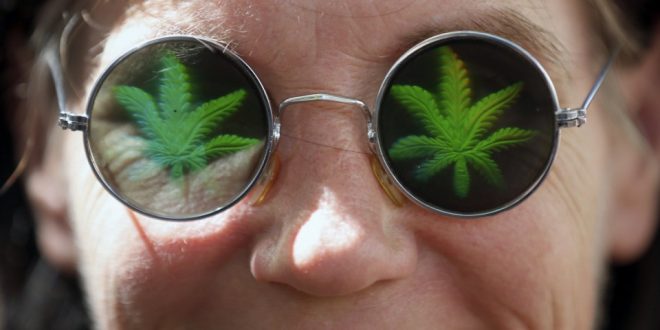A new study out of UBC-Okanagan has found using marijuana could help some alcoholics and people addicted to opioids kick their habits.
“Research suggests that people may be using cannabis as an exit drug to reduce the use of substances that are potentially more harmful, such as opioid pain medication,” study lead investigator Zach Walsh, an associate professor of psychology, said in a press statement.
The researchers conducted a comprehensive systematic review of all studies on medical cannabis use and mental health, as well as reviews on non-medical cannabis use, thereby making it the most comprehensive report to date on the effects of medical cannabis and mental health. It’s been published in the journal Clinical Psychology Review.
The team found evidence that marijuana could help with symptoms of depression, social anxiety, and PTSD. However, cannabis use could be detrimental for those with other conditions, like bipolar disorder and psychosis. In fact, research has found that the risk of psychosis is more than tripled for those who abuse cannabis.
However, there’s still a lot to learn when it comes to the potential effects — both beneficial and adverse — of cannabis.
“There is not currently a lot of clear guidance on how mental health professionals can best work with people who are using cannabis for medical purposes,” says Walsh. “With the end of prohibition, telling people to simply stop using may no longer be as feasible an option. Knowing how to consider cannabis in the treatment equation will become a necessity.”
As marijuana continues to become legalized and decriminalized via policy change, it’s more critical than ever to understand how the drug can impact patients with certain health conditions.
Frustratingly, scientists argue that the federal government limits marijuana research by continuing to categorize it as a Schedule I drug under the Controlled Substances Act, alongside substances like heroin and ecstasy.
What’s more, the government only allows clinical marijuana research to be conducted with the National Institute on Drug Abuse’s cannabis supply — grown exclusively at the University of Mississippi — with a maximum THC potency of 12.4 percent. Marijuana sold on the streets and concentrated products have a much higher potency (anywhere from 35 to 70 percent), which renders the accuracy of these limited legal marijuana trials as questionable.
In conclusion, Walsh says that their new review has shown that “patients and others who have advocated for cannabis as a tool for harm reduction and mental health have some valid points.”
Agencies/Canadajournal
 Canada Journal – News of the World Articles and videos to bring you the biggest Canadian news stories from across the country every day
Canada Journal – News of the World Articles and videos to bring you the biggest Canadian news stories from across the country every day



